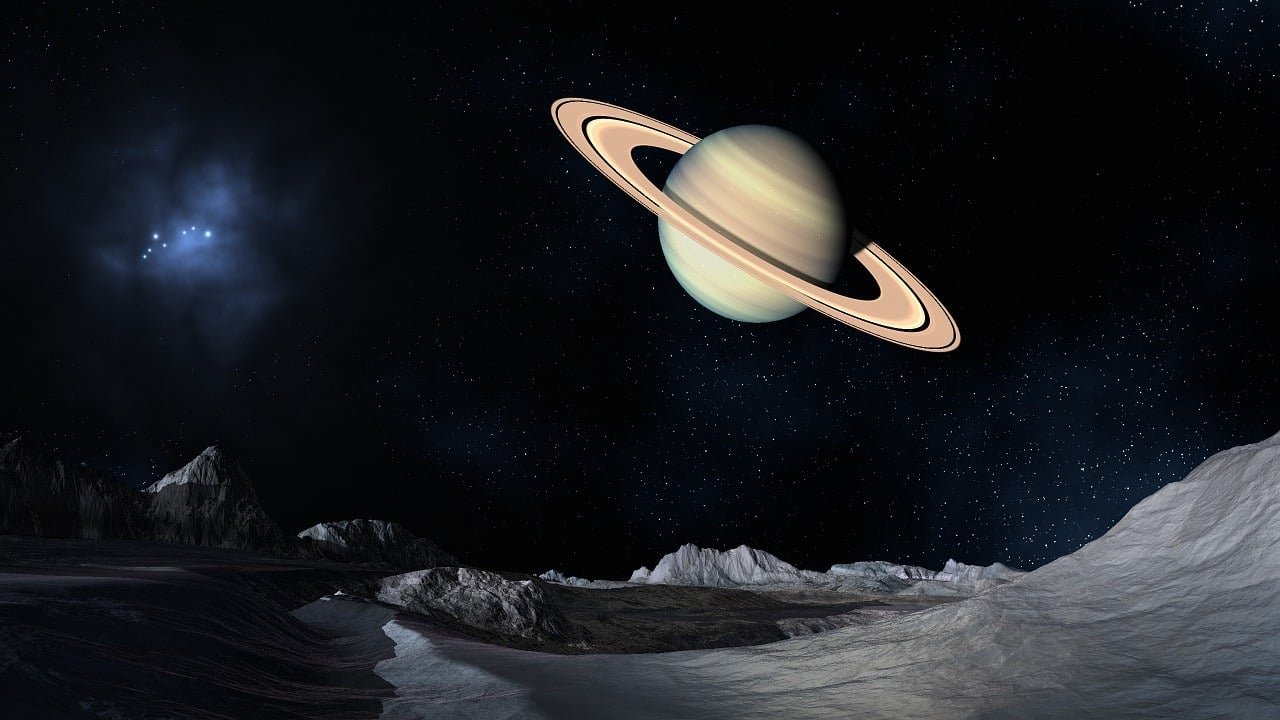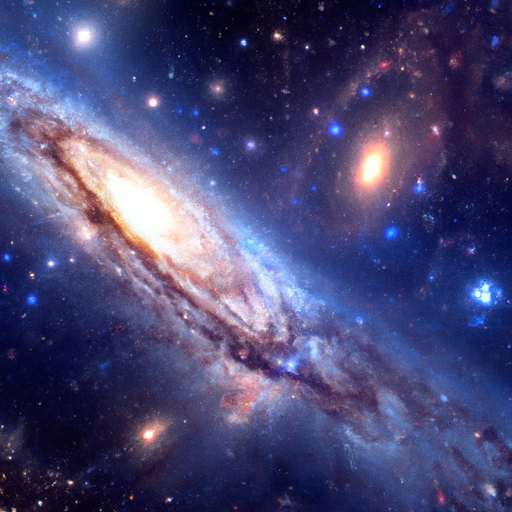Picture this: a universe that is perfectly fine-tuned, with the precise physical laws and constants that enable life as we know it to exist. It sounds like a work of fiction, but believe it or not, our universe may just be one such masterpiece. In this article, we will explore the concept of cosmological constants and their role in shaping the very fabric of our existence. From the intricate balance between gravity and electromagnetism to the mysterious dark energy that drives the expansion of the universe, get ready to embark on a fascinating journey into the wonders of our finely tuned universe.
Introduction
Welcome to this comprehensive article on the subject of cosmological constants and the fine-tuning of our universe. In this discussion, we will explore the definitions and importance of cosmological constants, delve into the concept of fine-tuning in the universe, examine the multiverse hypothesis and its criticisms, and explore the evidence for fine-tuning. We will also consider the implications of fine-tuning, controversies and debates surrounding this topic, future discoveries and research, as well as the applications of fine-tuning in other fields. By the end of this article, you will have a deeper understanding of the fascinating intricacies that make our universe finely tuned.
The Cosmological Constants
Definition
Cosmological constants refer to the numerical values assigned to various fundamental physical quantities that shape the behavior and properties of the universe. These constants, such as the speed of light, Planck’s constant, and the gravitational constant, are fundamental building blocks of the laws of physics. They provide the framework and constraints within which the universe operates and ultimately shape its structure and evolution.
Importance
The cosmological constants hold immense importance in understanding the nature of our universe. They determine the fundamental forces and interactions that govern everything from the behavior of subatomic particles to the formation of galaxies and the expansion of space itself. The intricate balance of these constants plays a crucial role in allowing life to flourish and the universe to exist as we know it. The precise values of these constants are not arbitrary but appear to be finely tuned, raising questions about the origins and purpose of our existence.

Fine-Tuning in the Universe
Overview
Fine-tuning in the universe refers to the extraordinary level of precision and delicacy required for the cosmological constants to be set at values that permit the existence of life. If the values of these constants were even slightly different, the universe would be drastically different, making life as we know it impossible. The concept of fine-tuning suggests that the conditions necessary for life are highly specific and that the universe seems to have been designed to accommodate it.
Anthropic Principle
The anthropic principle is a principle that attempts to explain the apparent fine-tuning of the universe by considering the fact that we, as conscious beings, are here to observe it. According to this principle, the parameters of the universe must be compatible with the existence of intelligent observers. In other words, the universe must be finely tuned for life because we can only exist in a universe that supports life. This line of reasoning leads to a philosophical debate about the nature of our existence and the role of a potential Creator.
The Multiverse Hypothesis
Explanation
The multiverse hypothesis suggests that our universe is not the only universe that exists but rather one of many universes, each with different sets of cosmological constants. In this view, the fine-tuning of our universe is not improbable but rather a consequence of the sheer number of universes in existence. With a vast number of universes, each with different values for the cosmological constants, it becomes statistically likely that at least one universe would be finely tuned for life.
Criticism
The multiverse hypothesis, while intriguing, has faced its fair share of criticism. One criticism is the lack of direct empirical evidence to support the existence of other universes. Critics argue that without observation or experimental verification, the multiverse hypothesis remains purely speculative. Additionally, the multiverse hypothesis does not answer the fundamental question of why the laws of physics in our universe are finely tuned. It merely shifts the question to the probabilistic existence of other universes, leaving the ultimate explanation unresolved.

Evidence for Fine-Tuning
Physical Constants
One line of evidence for fine-tuning lies in the precise values of the physical constants. Scientists have discovered that even the slightest deviation in these values would result in a universe hostile to life. For example, if the ratio of electromagnetic force to gravitational force were slightly different, atomic interactions essential for the existence of stable matter would be disrupted. These delicate balances indicate that the cosmological constants must be finely tuned from the very beginning.
Anthropic Coincidences
Anthropic coincidences refer to seemingly improbable circumstances that enable the existence of life. The universe exhibits a remarkable harmony between its cosmological constants and the emergence of life. For instance, the particular balance between the strong nuclear force and the electromagnetic force allows for the stability of atoms and the formation of complex molecules. The occurrence of such coincidences points towards a higher order or purpose behind the fine-tuning of the universe.
Fine-Tuning Arguments
Several fine-tuning arguments have been put forth to support the notion of a finely tuned universe. These arguments involve statistical analysis, probabilities, and considerations of different scenarios. They argue that the likelihood of the universe having the necessary conditions for life to emerge by chance alone is exceedingly small. The presence of fine-tuning, therefore, suggests the involvement of an intelligent designer or a multiverse with a vast array of universes.
Implications of Fine-Tuning
Existence of a Creator
The fine-tuning of the universe raises profound questions about the existence of a Creator or a guiding force behind the intricacies of the cosmos. The precise calibration of the cosmological constants to permit life seems to suggest a purposeful design. This notion has led some to embrace the concept of a divine intelligence that has deliberately set the stage for life in the universe. However, this interpretation remains the subject of philosophical and theological debate.
Multiverse vs. Design
The fine-tuning of the universe presents an alternative view to the multiverse hypothesis. Instead of relying on the existence of numerous universes to explain the fine-tuning, the concept of design posits that the universe was intentionally created with life in mind. Advocates of design argue that the complexity and interdependencies found in the universe point towards an intelligent designer, while proponents of the multiverse hypothesis see fine-tuning as a natural consequence of the statistical probability.
Philosophical Considerations
The concept of fine-tuning has profound philosophical implications. It raises questions about our place in the universe, the nature of reality, and the meaning of life itself. Understanding the fine-tuning of the universe invites us to ponder the purpose, if any, behind our existence, and consider the profound mystery of how our universe came to be the way it is. These philosophical considerations challenge us to explore our understanding of reality and our role within it.

Controversies and Debates
Scientific Consensus
While there is scientific consensus on the fact that the universe appears to be finely tuned, there is ongoing debate about the interpretations and implications of this fine-tuning. The scientific community generally acknowledges that the fine-tuning of the cosmological constants is a puzzling and remarkable feature of our universe. However, opinions vary on whether this fine-tuning necessitates invoking an intelligent designer or can be explained by natural processes such as the multiverse.
Critics and Skeptics
Critics and skeptics challenge the fine-tuning argument, suggesting alternative explanations or dismissing the concept as anthropocentric or fallacious. Some argue that the appearance of fine-tuning is an illusion caused by a selective interpretation of the available evidence. Skeptics propose that alternative physical laws or mechanisms may exist that do not require the fine-tuning of the cosmological constants. These differing viewpoints contribute to the ongoing scholarly debates surrounding fine-tuning.
Alternative Explanations
Various alternative explanations have been proposed to account for the apparent fine-tuning without invoking an intelligent designer or the multiverse. Some physicists explore the possibility of a yet-unknown underlying theory that could explain the observed values of the cosmological constants. Others speculate that the fine-tuning may arise from deeper principles or a yet-to-be-discovered framework allowing for the emergence of life-supporting universes. These alternative explanations reflect ongoing scientific exploration and the search for deeper understanding.
Future Discoveries and Research
Advancements in Cosmology
Continued advancements in cosmology, observational astronomy, and particle physics hold the potential for uncovering new insights into the nature of the universe and its fine-tuning. Scientists are working to refine our understanding of the cosmological constants, investigate their interplay with the fundamental forces, and explore the origins of the universe. Future discoveries may reveal additional evidence, leading to breakthroughs in our understanding of fine-tuning and its implications.
Investigation of Fine-Tuning
Further research into the fine-tuning of the universe aims to better understand the mechanisms and factors that contribute to its extraordinary balance. Scientists continue to explore the fundamental laws of nature, conduct simulations and experiments, and study the implications of different scenarios. By investigating the fine-tuning, researchers seek to shed light on the nature of our universe, its origins, and the broader questions of existence and purpose.

Applications in Other Fields
Astrobiology
The concept of fine-tuning has significant implications for the field of astrobiology, which seeks to understand the possibility of life beyond Earth. By understanding the delicate balance of cosmological constants and their relationship to life-supporting environments, scientists can better identify potential habitats for extraterrestrial life. Fine-tuning considerations also inform the search for exoplanets and guide the development of hypotheses on the conditions necessary for life to emerge elsewhere in the universe.
Theoretical Physics
Fine-tuning concepts have a direct impact on theoretical physics, pushing scientists to refine and expand their knowledge of fundamental laws and their implications. The exploration of fine-tuning stimulates the development of innovative theories and models that can explain the physical constants and their interconnectivity. This ongoing research helps shape our understanding of the universe’s workings and offers potential insights into new principles that govern the laws of nature.
Mathematical Concepts
The fine-tuning of the universe has also influenced mathematical concepts and their application in various fields. Mathematics provides a powerful tool for modeling and understanding the behavior of the cosmos. The study of fine-tuning involves advanced mathematical analysis, probability theory, and statistical methods to assess the likelihood of certain values for the cosmological constants. This interplay between mathematical concepts and the cosmos contributes to the broader field of mathematical physics.
Conclusion
In conclusion, the fine-tuning of our universe, through the delicate balance of cosmological constants, is a remarkable feature that continues to inspire scientific exploration and philosophical contemplation. The precise calibration of these constants raises questions about the existence of a Creator, the role of the multiverse, and the underlying nature of our reality. While controversies and debates persist, ongoing discoveries and advancements in cosmology, as well as investigations into fine-tuning, hold the promise of unveiling new insights and deepening our understanding of the universe we call home.